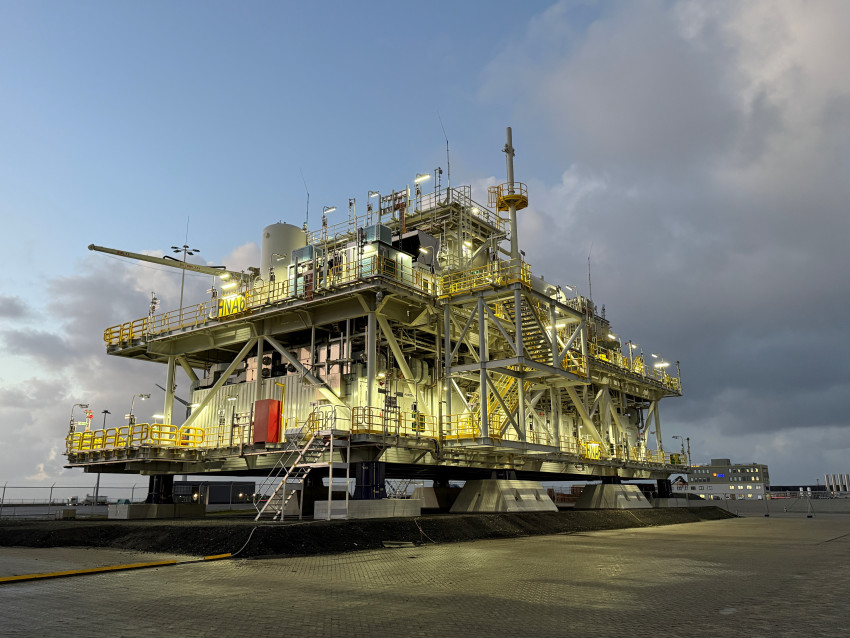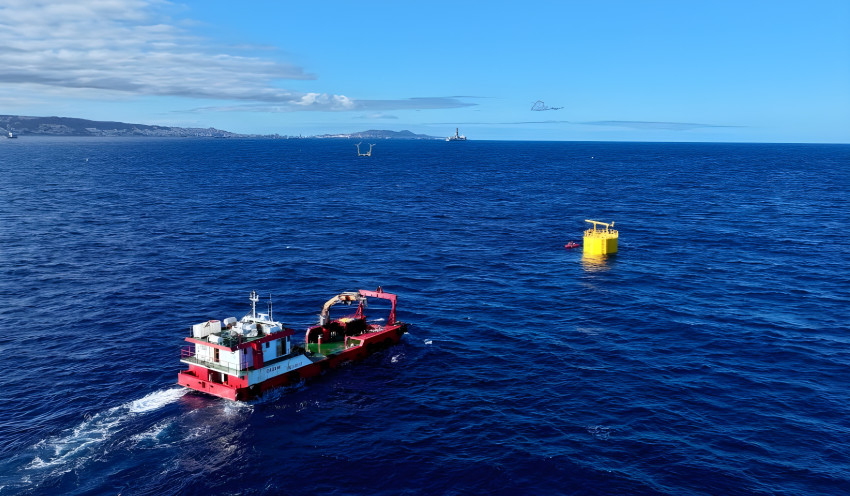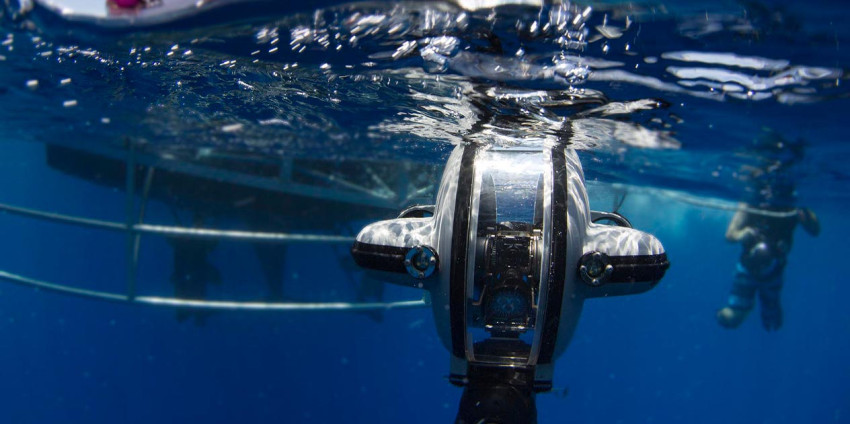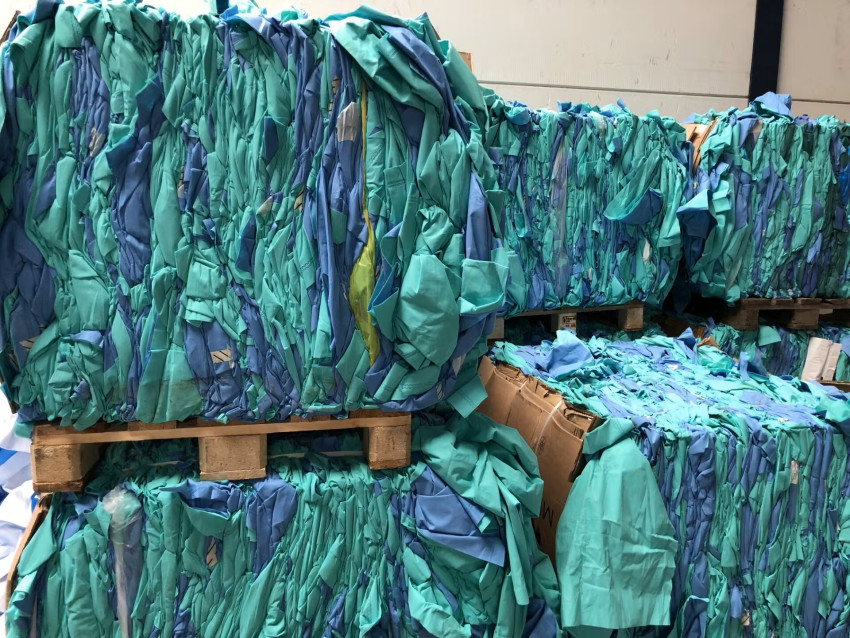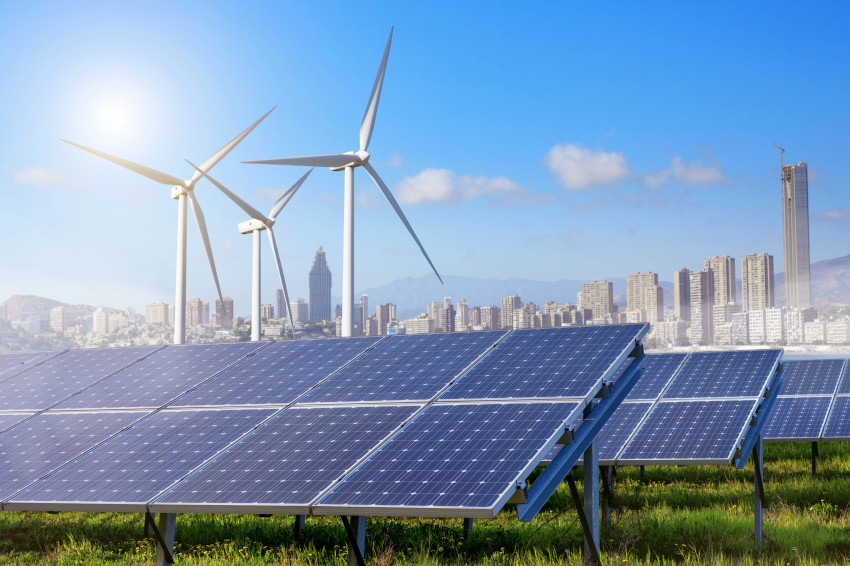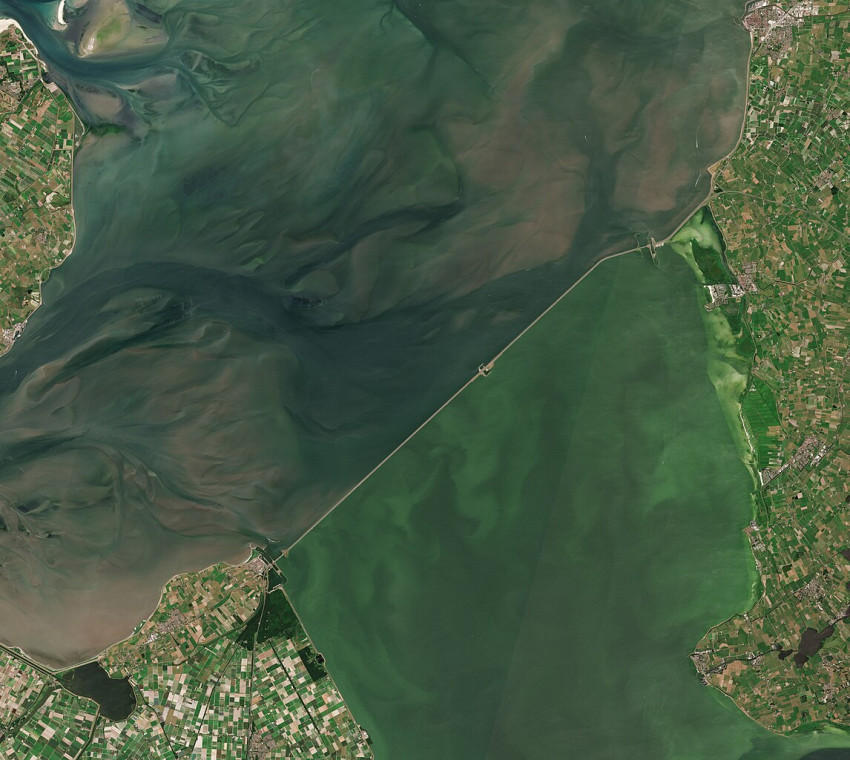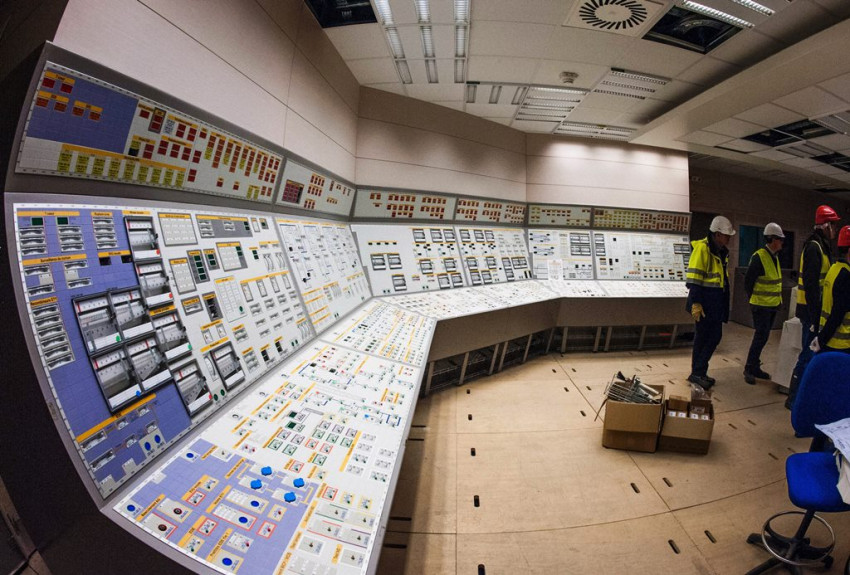
Passionate plea for nuclear energy
One of the loudest proponents of nuclear energy, Mike Shellenberger, was in the Netherlands this week. He held a well-attended lecture at Pakhuis De Zwijger, together with Jan-Leen Kloosterman, professor of nuclear energy at Delft University of Technology. They met with little opposition, but the audience does now have a list of the advantages of nuclear power.
For a long while, it looked as if the evening on the fifth floor of Pakhuis De Zwijger was going to proceed in a calm and controlled manner; polite language, properly moderated by a skilled presenter, with respectful questions from the audience. But then, all of a sudden, the emotions associated with a sensitive theme such as nuclear energy broke loose. People without access to the microphone began to shout around the room indiscriminately. ‘You totally ignored my question!’ an irritated spectator barked at American Mike Shellenberger.
It has to be said, Shellenberger is pretty sure of himself, and shares his convictions with a slick presentation. In fact, he’s so convinced that he is right, that it almost comes across as arrogant, a member of the audience noted. He didn’t meet with much opposition in a room that, by the sound of it, was mostly filled with advocates of nuclear energy or those still on the fence.
The original intention was that Shellenberger would enter into discussion with opponents of nuclear energy, but they were nowhere to be found, or may have had second thoughts and decided not to cross swords with Shellenberger.
ACTIVIST
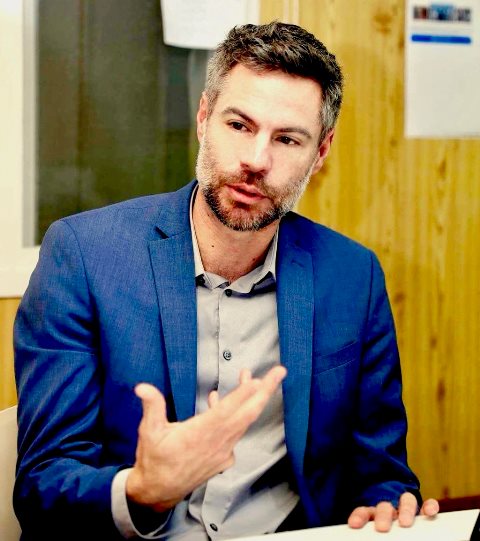
Mike Shellenberger is a writer, publicist, speaker and activist. He used to be against nuclear power, but 'I changed my mind when I realised that only using energy from renewable sources such as the sun and wind would not be sufficient for a modern society'. Since then, ecomodernist Shellenberger has been travelling around the world to preach the benefits of nuclear energy. If you listen to him for an hour and a half, you’ll get to hear a whole list of them.
His main argument: nuclear energy is the only reliable and safe form of energy generation with low CO2 emissions. ‘Nuclear' might still be expensive at the moment, but in time it will be cheaper than energy generated by the sun and wind, because the latter require an enormous amount of back-up (gas-fired power stations and energy storage in hydrogen or batteries) for times when the sun is nowhere to be seen and there’s no wind.
FRANCE VS. GERMANY
According to Shellenberger, an interesting case study is the comparison of France and Germany. Germany has put every effort into building wind farms and installing solar panels on roofs; they are apparently ahead in the Energiewende, the German word for energy transition. However, Shellenberger says that electricity has doubled in price. ‘That’s not the case in France, where 75% of electricity is supplied by nuclear power plants.'
So, let’s look at the cost of building nuclear power plants. The budget for the new European Pressurized Reactor in Flamanville, France, was estimated at €3.3 billion in 2007, and scheduled for completion in 2012. It’s now late 2018, and still not ready, although the builders hope to finally complete it next year. The price? €10.9 billion. Why are new nuclear power plants so incredibly expensive, and their construction riddled with delays? Shellenberger: 'Because people keep trying out new designs despite the existing technology being perfectly OK. We’re not building a sports car; nuclear power should be dead boring!'
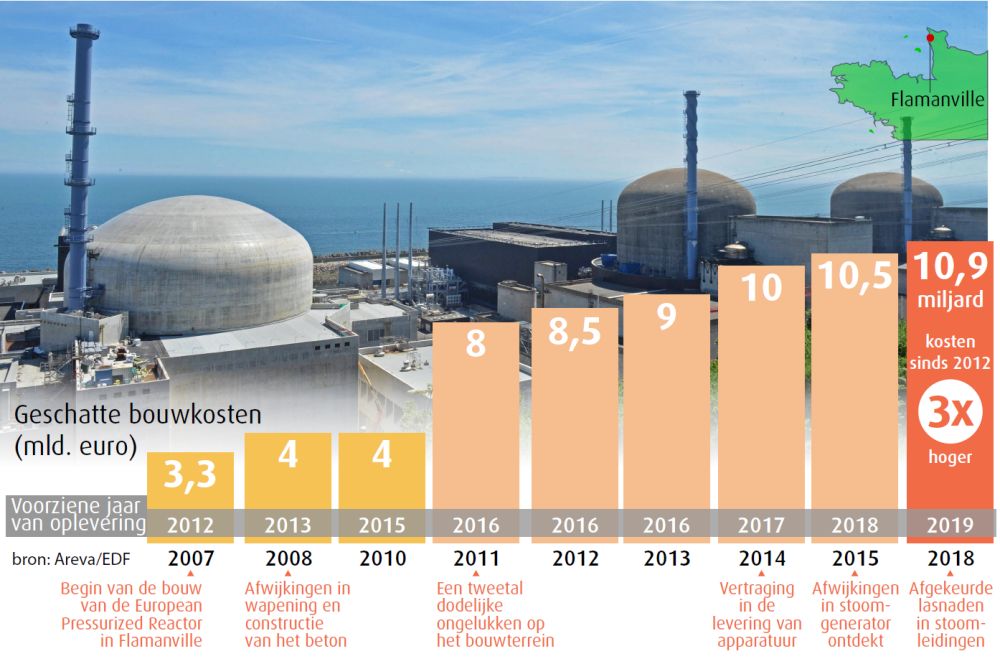
MORE STANDARDISATION
A recent report from the Massachusetts Institute of Technology (see: ‘Nuclear energy has to be cheaper’) supports the call for more standardisation in the nuclear power industry. At the moment, we start from scratch every time we build a new nuclear power plant. It would be more sensible to build the same units in large series, like a factory production line, to acquire experience and reduce costs. Does Shellenberger already see companies moving in this direction? ‘No. I’m afraid not. Apart from a single company that makes small modular reactors, I can’t see any major movement towards standardisation, even though we really need it.’
BOMB
Artist Tinkebell had some criticism of nuclear power. She could not attend the meeting, but sent a video she had recorded in the evacuated area around the nuclear power plant in Fukushima. 'I’m concerned about storing nuclear waste. All you need is one terrorist to break in, and they can make a bomb with it. Isn’t that highly irresponsible?’
'No, no, no', reacted Shellenberger, shaking his head. ‘A nuclear waste storage facility is the last place a terrorist would go to get material. It is too well protected, and far too complicated. If you want to make a dirty bomb (an ordinary explosive with radioactive material around it, ed.) it’s much easier to go to a hospital and steal some radioactive material there.'
STORAGE
The American is also not worried about the long-term effects of the storage of nuclear waste. He showed a slide with a photograph of a storage space deep underground in Switzerland, with about twenty new barrels, all tidy and clean. 'That's how it’s done. You build a storage facility and protect it. No problem.'
Shellenberger brings his point across cleverly; he always shows the best-case scenario. However, when a member of the audience asked what we’re supposed to do with barrels of nuclear waste that are not yet deep underground and that no one wants to take responsibility for (the questioner referred to Petten in the Netherlands, where the big clean-up of historic nuclear waste has started at the expense of the government), he side-stepped the issue. Shellenberger clearly doesn’t take the waste problem very seriously.
ENERGY DEMAND
Nevertheless, his argument in favour of nuclear energy has become more relevant in the light of the recent IPCC report, which also states that the world needs nuclear energy to meet its growing energy demand. In all four scenarios studied by the IPCC, nuclear energy grows strongly.
That makes it all the more strange that nuclear power has barely been mentioned, if at all, in the climate discussions during Ed Nijpels’ five climate tables. It seems as if people are afraid of touching the subject. That wouldn’t surprise me, Shellenberger argued yesterday. Nuclear energy has become a loaded and emotional issue.
It has in fact always been emotional, as Shellenberger showed. Nuclear power has been confused with nuclear weapons ever since the atomic bomb was dropped on Hiroshima. There is also an irrational fear of nuclear fallout as a result of accidents at nuclear power plants. ‘At the same time, 7 million people are dying every year from air pollution caused by fossil fuels. That’s what people should get angry about.'
POLITICS
Now we’ll have to wait and see when politicians are brave enough to tackle nuclear power again. It would be a logical step: the Netherlands still needs to take some hefty measures to achieve its climate goals (see: ‘The climate and agriculture facing major challenges'). And the Netherlands is well suited for nuclear energy, according to both Kloosterman and Shellenberger. ‘There are many people living in close proximity who all need energy, and there’s plenty of cooling water close by.'
For those who couldn’t be present earlier this week, here’s a TED talk given by Shellenberger in 2017:
There were few opponents of nuclear power present at Pakhuis De Zwijger in Amsterdam, but on 16 November, WISEwill be celebrating its 40th anniversary in the same venue.
If you found this article interesting, subscribe for free to our weekly newsletter!
Opening photo: Control room of the new Flamanville nuclear power plant in France. Photo: PHOTOPQR / Gilles Collas / Ouest France

